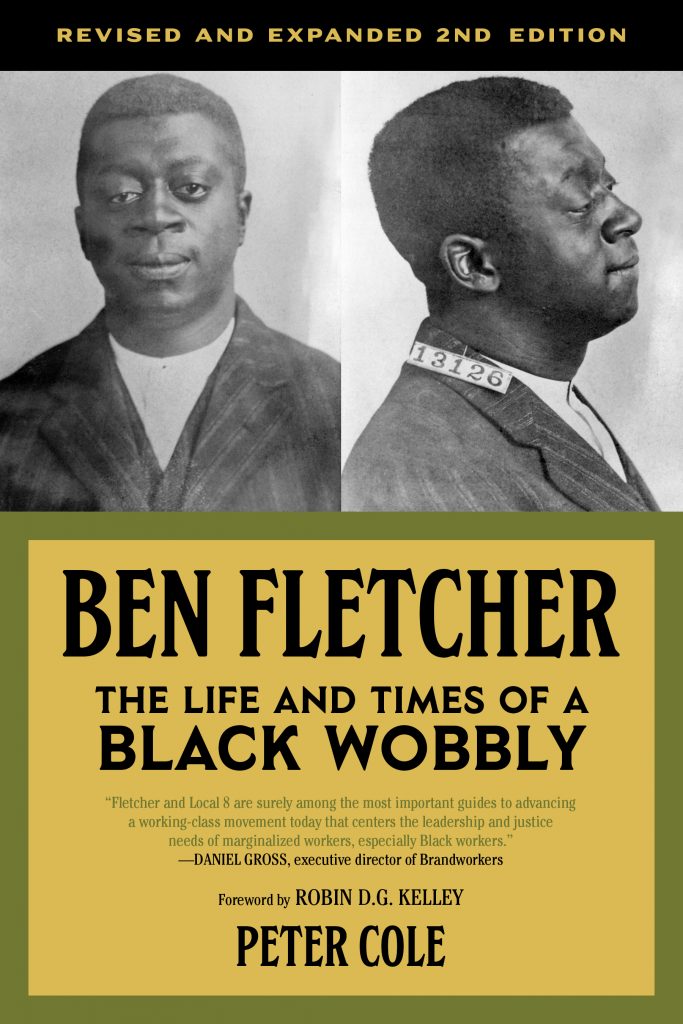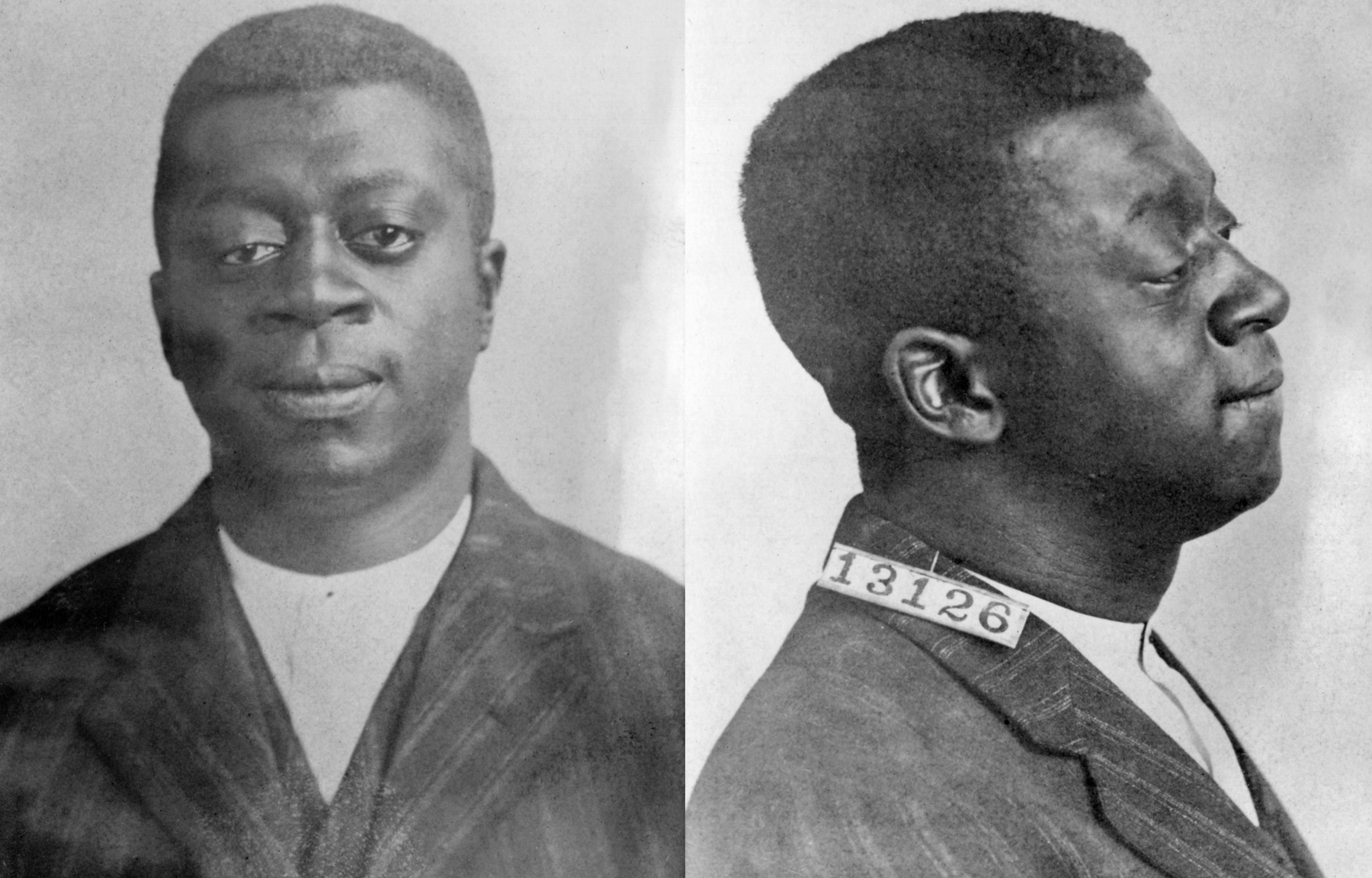By Herb Boyd
Amsterdam News
February 16th, 2023
Many years ago when this column launched, one of the first profiles was of Ben Fletcher, an African American activist and worker who helped found the Industrial Workers of the World (IWW). Discussion last week of the legacy of Dorothy Lee Bolden and her founding of the National Domestic Workers Union, reminded me of Fletcher. A recent book by Peter Cole, “Ben Fletcher: The Life and Times of a Black Wobbly” (PM Press, 2021), provides the virtually unknown and unheralded labor leader with a fresh currency of respect so vitally needed today.
The first question raised by several readers when we first examined Fletcher’s life and legacy was, “What is or was a Wobbly?” A Wobbly was a member of the IWW, which was formed in 1905 to organize workers who labored outside the skilled trades, including textiles, docks, agriculture and mining. They are better known as Wobblies, and they are just as active today as they were at the dawn of the 20th century.
Born Benjamin Harrison Fletcher on April 13, 1890, in Philadelphia, he worked as a day laborer and longshoreman, loading and unloading ships. Around 1912, he joined the Socialist Party and the IWW. He was fascinated by the various speakers for the organizations and soon was on the soapbox himself, where he enthralled listeners with his oratorical skills. It was a talent that earned him a leadership role in the IWW and at the helm of the Philadelphia branch.
For the next five years, Fletcher was an intrepid union organizer. He was a tireless and fearless visionary who co-founded Local 8 of the Marine Transport Workers Industrial Union a year after joining the IWW. That was a unique mix of ethnic groups who later went on strike for higher wages while espousing an uncompromising anti-capitalist and anti-racism outlook. Within a three-year period, all but two of the docks in Philadelphia were controlled by the IWW.
Having galvanized the union in the City of Brotherly Love, Fletcher began traveling up and down the East Coast as a voice and spokesperson for the IWW. He barely escaped a lynching in Virginia before heading for Boston, where he found fertile ground for his ideas and a cadre willing to assist him in his mission.
It was here that Fletcher learned that he had been indicted for his organizing activities. He immediately returned to Philadelphia and, along with more than 160 union activists, was publicly indicted. In 1918, he was arrested and placed under a $10,000 bond. When the bond was reduced to $1,500, the IWW promptly paid for it.
Subsequently, Fletcher was the only Black American among those arrested. He was found guilty of treasonous activities, fined $30,000 and sentenced to 10 years in the federal prison in Leavenworth, Kansas. His case was a news story, particularly in the leftist publications, and prominently covered in A. Philip Randolph and Chandler Owen’s The Messenger.
Fletcher served three years and then had his sentence commuted, along with several of the other Wobblies.
In 1931, Fletcher recounted many of the exciting episodes of his union organizing in an extensive interview in the Amsterdam News.
“I was preparing the longshoremen of Baltimore for a strike in 1917 for higher wages, shorter hours and better working conditions when I received instructions from headquarters to proceed to Norfolk where the dock workers were becoming restless and asking that an organizer be sent to them,” he said.
“I found the men responsive and eager for a union. But I had not been in town long before word was circulated that I represented a dangerous element set on the destruction of property and the overthrow of the Government. Then I began receiving messages of a threatening character. I would be lynched if I spread that doctrine around Norfolk, I was told. One night, friends, fearing that my life was in danger, smuggled me aboard a northbound ship to Boston.
“By this time the Government, spurred on by the lumber and copper interests of the West, had set about a deliberate plan to eradicate the IWW, which was growing rapidly in numbers, gaining control of certain important industries, and threatening the supremacy of the AF of L, which the Government consistently favored throughout the war period. It was while I was working in Boston that I received a tip that I was in line for indictment by a Federal Grand Jury. Accepting this tip as authentic[,] I returned to my home in Philadelphia, where I preferred to be placed under arrest. The next week[,] I read in the paper that indictments had been returned against 166 of us and that we were to be arrested on sight.”
After he served time in prison, Fletcher’s union activities were no longer as vigorous and determined as in the past. He remained aligned with the IWW, but not in a leadership capacity. Much of his energy was devoted to denouncing the Communist Party and what he believed were attempts to co-opt the union. On occasion, he delivered speeches on behalf of union activities, which were eventually limited by health issues. He later settled in Brooklyn with his wife, worked as a building superintendent until his death in 1949.

Peter Cole is a professor of history at Western Illinois University in Macomb and a research associate in the Society, Work and Development Institute at the University of the Witwatersrand in Johannesburg, South Africa. Cole is the author of the award-winning Dockworker Power: Race and Activism in Durban and the San Francisco Bay Area and Wobblies on the Waterfront: Interracial Unionism in Progressive-Era Philadelphia. He coedited Wobblies of the World: A Global History of the IWW. He is the founder and codirector of the Chicago Race Riot of 1919 Commemoration Project.






